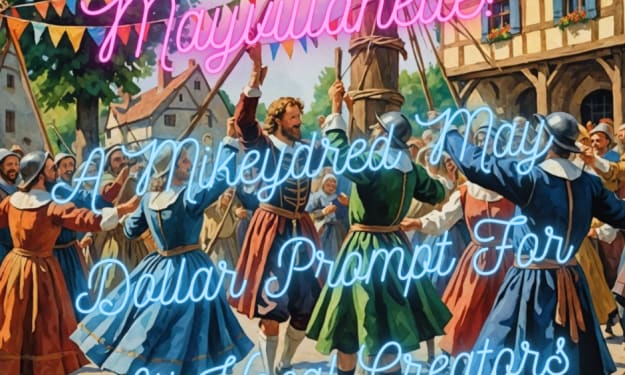My Spy Notebook: Chronicles of the Dead Man Parking Lot
Fiction

Like many childhoods, mine was tumultuous, a horrible home life where it was safer to stay away than go home to the emotional and physical abuse that awaited at the hands of my father.
I learned early on to develop survivor mechanisms. Hanging out in the stacks of the public library was one of them. I spent hours wandering through the rows of bookshelves, reading a few pages of what looked interesting, marking my place in the book, and hiding it behind the others so I wouldn’t lose my place when I returned the next day.
I never really returned to a hidden book until I discovered Louise Fitzhugh’s Harriet the Spy Series about eleven-year-old Harriet M. Welsch, a curious, aspiring writer who lives on New York’s Upper East Side. Harriet carries a secret notebook with her wherever she goes to jot down her observations about the people and events she encounters during her day.
I was careful where I hid this book when I read it, ensuring nobody would find it when I returned after school. I was eight years old at the time. Harriet was eleven and she instantly became my best friend. Like Harriet, I became a spy and started carrying a detective notebook with me and took notes on everything and everyone I encountered.
I scribbled down whatever I saw: Gray-haired lady whose hair looks blue under the lights. Old man with glasses sleeping behind a crumpled Orange County Register. Young mother, pregnant with two annoying kids.
I jotted down random thoughts. Nothing too exciting, but it kept me busy enough until late in the afternoon when my father left the house to go to work and I could pedal home and not have to see him.
The library, its books, and my secret notebook provided me with a haven, a world of my own creation where I wasn’t tormented. The library stacks became my refuge after school, and the world of Harriet the Spy expanded my horizons beyond the harsh reality I faced.
Like her, I felt the thrill of uncovering hidden truths and secrets in the everyday lives of the people around me. I started to see the world through the lens of a detective, always looking, observing, questioning.
One day, while riding my bike through the parking lot, I noticed a lifeless man lying on the ground between two station wagons. I stopped and gave him a tap with my foot. I jotted down a few notes. Age: old. Hair: Black. Clothing: pants and shirt. I tapped him again, this time with my bike tire. He didn’t move. I got on my bike, peddling away as fast as possible to the police station across the street from the library, and told them what I saw.
The Officer heard my story and jotted down some notes himself. (Maybe he read Harriet the Spy as well.) He also questioned me. What is your name? Where do you live? Where are your parents? What were you doing in the library parking lot? Why were you alone? When do your parents get home from work? Can we call them?
NO!
I convinced the officer that I just lived a few blocks away and needed to get home before dark. He wanted to give me a ride, but I had my bike, I told him. Then someone from the office yelled, “The young sleuth is right. Just got a call in.”
The officer’s demeanor shifted from questioning to action. He radioed for additional assistance and informed them about the situation. I stood there, my heart pounding. Can I go home now? I asked. The officer waved me off.
I left the station and pedaled home through the same parking lot with the dead man. I briefly stopped to see flashing police car lights and paramedics loading the man onto the stretcher.
Maybe he wasn’t dead after all.
I was sad for this man. Why was he here all alone? Where was his family? Did he have a family? Was he like me, hiding from them until it was safe to return?
When I got home, I fell asleep and took solace when my mother returned and tucked me in. No, I didn't tell her about the man. She had enough to worry about trying to make ends meet.
The next day, when I returned to the library after school, I learned that the man was only 36 and died of an overdose.
At eight years of age, I understood. I understood how some people used drugs and alcohol to cope and get through the day. I understood the fragility of life, the precarious balance between survival and despair. I understood the extraordinary depth of despair that some people, like me, hide within them in order to appear ordinary to the world.
Some days, my heart aches, and I feel as lifeless as the dead man in the parking lot. I call these my “dead man parking lot” days. On these days, I’m reminded of the hidden pain and struggles that so many carry, and I’m acutely aware that my own life has been marked by the same shadows.
Maybe this is why I write, take notes, and jot down random observations on napkins, grocery receipts, and any bits of paper I can find when I don’t have my journal. Like one of my favorite authors, Tim O’Brien, I am writing “to save my life,” to save the little eight-year-old girl who, on some days, gets knocked off balance and pulled underwater and away from the shore.
I write to work through the dead man parking lot days and the gosh-darn fragility of human life and depths of despair that many of us carry.
Sixty years have passed, and I’m still writing —
END.
Originally published on Medium






Comments
There are no comments for this story
Be the first to respond and start the conversation.